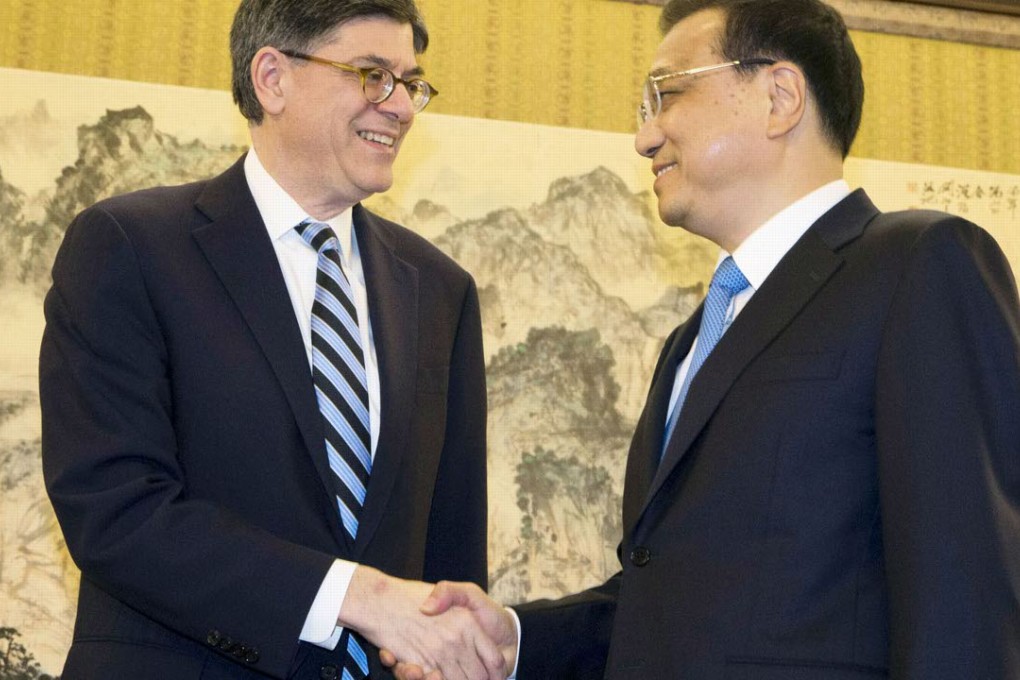US Treasury chief welcomes Beijing’s use of various tools to boost economic growth
Jack Lew acknowledges Hong Kong’s role in connecting mainland with world

US Treasury Secretary Jack Lew has welcomed Beijing’s use of a wide range of tools to boost economic growth and avoid a currency war, while also tipping his hat to Hong Kong’s role in connecting mainland China with the world.
His remarks came a day after Beijing cut mainland banks’ reserve requirement ratio (RRR) on Monday to encourage bank lending in a bid to boost the economy and announced job cuts in the steel sector to curb oversupply.
Speaking to the media at the US consulate in Hong Kong, Lew said his recent visit to Beijing and Shanghai had been a success.
“Globally, each of us need to do what we can to create more demand, more growth in our own country,” he said. “This is because the global economy cannot rely on the US as the consumer of last resort.”
The risk for a currency war is greatly, greatly reduced
Lew said that during the G20 meeting in Shanghai last week, China had joined other countries in committing to use all types of tools, including fiscal policy, structural reform and monetary policy, to boost growth and reduce excess supply in certain industries.
The People’s Bank of China surprise the market on Monday with a 50-basis-point cut to RRR to encourage banks to lend more money. The first such cut since October followed remarks by central bank governor Zhou Xiaochuan in Shanghai last week that China would lean towards monetary easing to support growth.